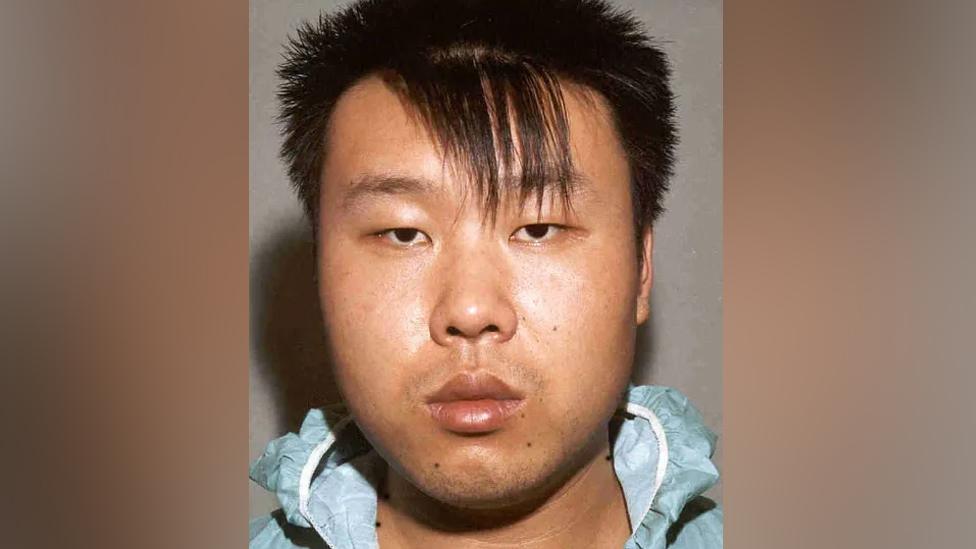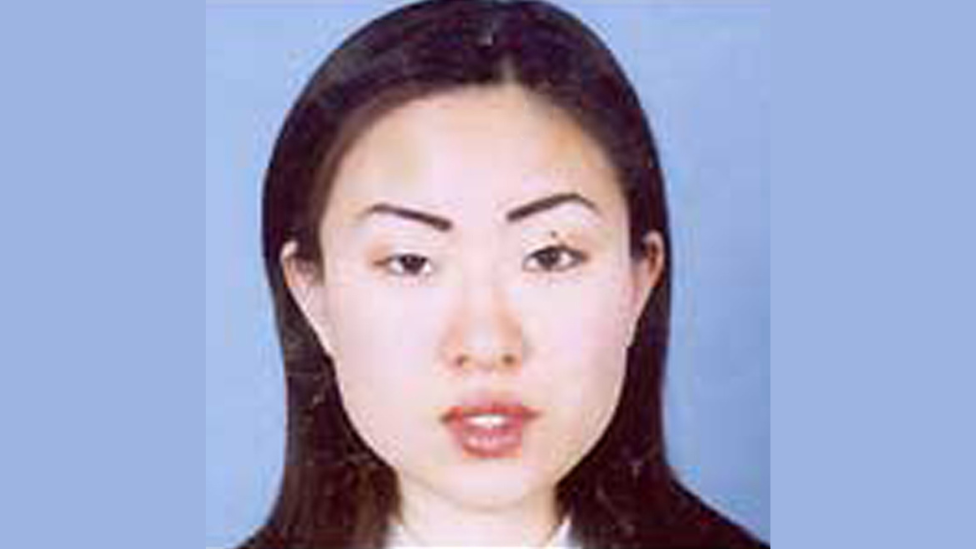Man who murdered girlfriend refused request to return to China
- Published

Chang Hai Zhang had asked to be transferred back to China after serving the minimum tariff for murdering his girlfriend
A prisoner who has served the minimum term of a life sentence for murdering his girlfriend is not legally entitled to be transferred back to his native China, the Court of Appeal has ruled.
Chang Hai Zhang murdered 22-year-old Qu Mei Na in Belfast in June 2004.
The body of Ms Qu was uncovered in the boot of a car and Chang admitted killing her.
He wanted to be deported after completing the 17-year minimum tariff of his life sentence.
Parole Commissioners have determined that the public would not be safe if Chang was released, and he remains imprisoned at HMP Maghaberry.
Chang, 44, launched a legal challenge following confirmation there was no formal agreement between the United Kingdom and China for the repatriation of prisoners.

What happened to Qu Mei Na?

Qu Mei Na was murdered in north Belfast in June 2004
Chang, an illegal immigrant from China, murdered his girlfriend, Qu Mei Na, in his Skegoniell Avenue flat in north Belfast in June 2004.
The semi-naked body of Ms Qu was found in the boot of a car at a garage on the Antrim Road, close to Chang's home.
He was arrested at the scene and admitted killing her the previous evening in the bedroom of the flat he shared with his cousin.
He told police he was provoked into strangling Ms Qu - claiming he found out she had been working as a prostitute in Dublin - and was planning to find a remote spot where he could burn her body.
Chang denied intending to kill her and entered a manslaughter plea at trial, based on a temporary loss of control.
Ms Qu was identified by dental records. At one stage, detectives travelled to China to establish her identify.
They visited the city of Dalian in Liaoning province, north-eastern China, and were able to establish that she was the only child of elderly parents.

Inmates in England and Wales can request the home secretary uses a discretionary power to transfer them to their country of origin after serving their minimum term.
But Chang is excluded from the statutory removal scheme operated in Northern Ireland because it does not extend to life prisoners.
His lawyers claimed a breach of human rights.
Counsel for the Ministry of Justice responded that any difference between England and Wales and Northern Ireland was justified due to the legitimate aim of respecting the devolved nature of law-making within the UK.
The Court of Appeal rejected allegations that not extending the provisions to Northern Ireland was incompatible with the European Convention on Human Rights.
Lord Justice McCloskey added that the authorities being challenged were not law-making bodies.
Chang is now expected to remain in prison until commissioners next review his continued detention.